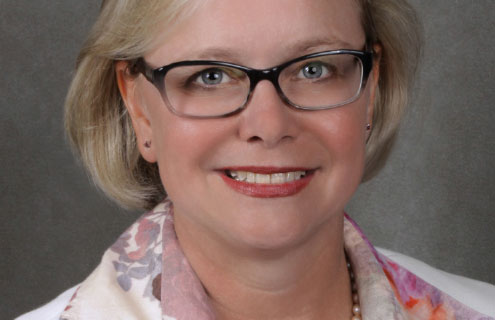Broadridge
Financial firms and corporations are being challenged to find new ways to manage risk. At the same time, cutting costs remains a priority. Patricia Rosch of Broadridge explains the innovative new strategies for a new world
How would you characterise the ‘new world’ in which your clients are now operating?
The process of buying and selling stock across borders is becoming harmonised. In capital markets regions such as the EU, we see that most dramatically, where, given the number of jurisdictions involved, it’s imperative to have synchronised and seamless systems and processes in place to support both domestic and foreign investment.
As a natural outcome, the proxy process that underlies securities systems must also be harmonised. That demands a complex data infrastructure to ensure transparency, accuracy, and local market compliance, which is in turn driving operational performance in global capital markets.
What are the most significant regulatory changes affecting you and your clients?
The highly regulated landscape has become the ‘new normal’ for securities-related companies—both on the buy- and sell-side. They are re-evaluating their business models in response to the demands of intensified regulation and governance, growing globalisation and changes in market structure. We see these as the key forces driving business transformation right now.
Broadridge and the Economist Intelligence Unit recently published the results of a survey of global business leaders within the financial industry. What we found was that the heightened volume and complexity of regulation and extensive industry restructuring have forced firms to rethink their business models on an unprecedented scale. Firms that are more adaptable at creating a proactive response to the changing market needs are more likely to differentiate themselves and outperform.
Look at new regulations like Target2-Securities (T2S). This fundamental regulatory change is putting significant pressure on securities firms. The move to T2S is intended to improve market efficiency and the transparency of cross-border transactions. But the implementation of systems to support compliance with the new rule is complicated and extends to every participant in the capital markets, not just banks and brokers.
The kinds of operational overhauls these new regulations necessitate must represent a huge investment. How are firms managing costs?
The aftermath of the 2008 financial crisis is still being felt. Certainly, the focus on taking cost out of operations is the result of the significant belt-tightening that was required post-2008. But cost-cutting can’t be undertaken at the expense of good corporate governance. Just as securities buying and selling is being harmonised across jurisdictions, the provision of proxy process services is being mutualised through a shared services model based on outsourcing. This is fundamental to doing business in the new world—leveraging economies of scale to drive efficiency and cost effectiveness.
How are issuers responding to new governance standards?
Here again, we’re seeing the importance of operations in a broader business transformation mandate. For the past four years, end-to-end vote confirmation has been at the centre of many governance conversations globally. Broadridge has been actively engaged in end-to-end vote confirmation initiatives in the US since the first program was piloted in 2011.
The end-to-end vote confirmation programme for the 2014 proxy season in the US was the largest and most inclusive to-date. Five of the major US tabulators each agreed to provide five issuers to the 2014 programme.
Building on the US experience, Broadridge is examining opportunities to introduce end-to-end vote confirmation in other markets. A pilot programme of end-to-end vote confirmation for institutional investors was conducted in cooperation with a registrar in Spain in 2013. This initiative was expanded in 2014 to include more issuers.
Also in 2014, two issuers in Taiwan offered end-to-end vote confirmation to their investors. The prominence of vote transparency as an important aspect of corporate governance for issuers continues to grow and there is ongoing dialogue with market participants in other countries such as the UK and Canada.
What kinds of operational changes need to be made in order to support best practices in governance and regulatory compliance?
Our recent work with the Taiwan Depository and Clearing Corporation (TDCC) is a great example of how data infrastructures and operations are at the heart of business transformation that supports both improved efficiency and a better process.
The initiative between Broadridge and TDCC establishes direct links with StockVote, the TDCC’s new electronic voting system for Taiwanese shareholder meetings. For companies that elect to use the StockVote system, direct voting into the system by Broadridge will enhance the level of straight-through processing and will improve voting deadlines for overseas investors, eliminating the many manual processes that before had to be undertaken by local sub-custodian banks. We work with sub-custodians and global custodians to send overseas voting directly to StockVote through our secure electronic voting platform.
The TDCC initiative was in response to concerns raised by investors about shareholder voting in Taiwan. This is a great example of participants working together—in this case, the depository, the regulator, and Broadridge, to enable improvements to the process for both domestic and foreign investors.
Looking ahead, what will be the most significant change that firm will have to undertake to be successful?
It is a new world. Nothing is as it was pre-2008. We understand that moving forward, there needs to be a greater focus on innovative strategies that acknowledge both the business requirement to operate efficiently and cost effectively, as well as the responsibility to comply with forward-thinking regulations and governance best practices.
Findings from the Economist Intelligence Unit survey point to the growing importance of operations in the implementation of these kinds of strategies. The survey reports that the majority of business leaders appreciate the transformative power of operations and are eager to have the chief operating officer play a leading role in driving business model change.
In today’s connected, global business environment, COOs have greater visibility on regulation, changes in market structure and shifting client needs. There is no doubt that the new world will be built on a foundation of operational excellence.



